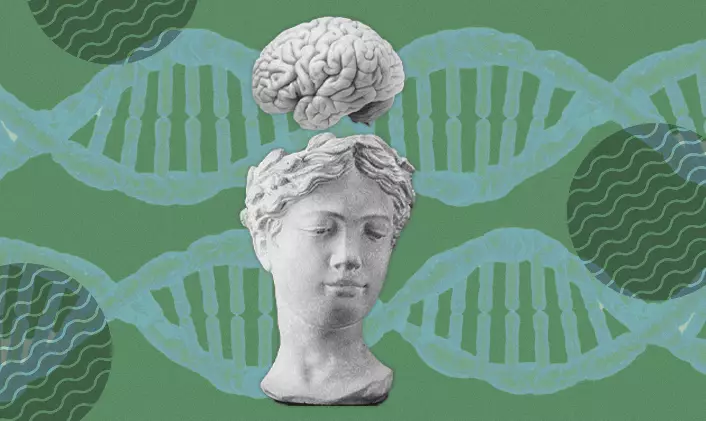Why is psychology considered a science?

Reviewed by Christina Neider, EdD, Dean of the College of Social and Behavioral Sciences
This article was updated on 05/03/2024.
Individuals interested in the origins of human consciousness, behavior and personality have likely read up on psychology at one time or another. Defined as the study of the mind and human behavior by the American Psychological Association, psychology encompasses several disciplines and concentrations.
As a potential student, you might wonder whether psychology is a science. After all, questions in chemistry or physics may be tested in a lab and proved mathematically. Psychology, on the other hand, seemingly lacks those elements associated with science. That’s not entirely true, however. The practice of psychology involves formal practices and methodologies, such as research and experimentation.
So, is psychology a science? Let’s take a closer look.
Common arguments against psychology as a science
Before discussing psychology’s scientific validity, let’s explore some common reasons for skepticism. These can include, but aren’t limited to, the following:
- A perceived lack of clearly defined terminology: Critics argue psychological concepts and terms are open to different interpretations. That makes it difficult to establish objective standards or measurements.
- Absence of practical application: Another criticism of psychology is that it doesn’t understand people enough to develop broadly workable solutions or technologies. This lack of practical application fuels skepticism.
- Its categorization as a social science: Because psychology is often viewed as a social science, some question its scientific nature. The variables involved in psychology are more complex and less predictable than in natural science.
Despite these concerns, a compelling argument can be made that psychology is a science.
How is psychology a science?
The main question to consider while we unpack whether psychology is a science is this: Does psychology use primarily scientific methods and philosophy to draw conclusions?
It’s important here to see science chiefly as a method to deduce useful information from observation. There are certainly methods of deduction outside the realm of science, and they can produce useful information. One’s personal experience, for example, may provide helpful information at times.
What makes science unique, among other methods of deduction, is just how formal its methods are. The scientific method prescribes certain criteria for any discipline of study to be considered scientific. Generally speaking, these principles are:
- Formulation of a hypothesis
- Deduction of evidence of hypotheses in experiments
- Reproducibility of experimental conclusions
- Reporting of conclusions for further analysis and observations
This inquiry is conducted empirically, meaning that scientists are to draw conclusions only from data produced without personal bias.
Psychologists use the scientific method to carry out research, forming their own hypotheses and conducting controlled experiments. They also draw conclusions based on collected data so that they can determine correlation and causation between variables. Psychologists might examine, for example, the correlation between stress levels and physical health. That correlation does not imply causation. Just because two variables are correlated doesn’t mean one causes the other. Instead, psychologists conduct controlled experiments to manipulate the independent variable and measure the effects on another. Both applications are scientific, but one directly shows cause, while another shows a potential link.
So, to answer the question at hand: Is psychology a science? Well, that answer relies on yet more questions:
- Do psychologists perform experiments that can be repeated, peer-reviewed and verified?
- Are insights drawn from such research and compared with those derived from prior research to form useful theories?
The short answer is yes. But the story of how psychology became a formal science is worth looking into too.
A brief history on psychology as a science
The word psychology comes to us from the Greek word psychē, meaning soul or spirit, and logos, meaning explanation. Similarly, the history of psychology as a science is rooted in ancient Greece.
Philosophers such as Plato and Aristotle conducted philosophical inquiries into the nature of the human soul. In his book The Republic, Plato put forth his theory that experience could not affect essential aspects of human nature. Aristotle, on the other hand, placed the origins of human behavior on lived experiences.
Though these philosophers never went as far as producing a scientific discipline out of these theories, their work provided a philosophical blueprint to establish psychology as a science down the line. Philosophers like René Descartes, Jean-Jacques Rousseau and John Locke also laid much of the philosophical groundwork that would be formalized into psychology as science.
Beginning in the mid-1800s, theories of the mind and human behavior began to formalize into a real scientific discipline. The German physicist and physician Hermann von Helmholtz, for instance, explored how hearing and vision are interconnected and how senses can be deceived. By creating experiments to prove the fallibility of human senses, Helmholtz helped develop the discipline of psychophysics, a precursor of psychology as a science.
Throughout the century, psychologists worked to formalize the discipline and introduce scientific methodology. Formal education in the subject was developed, along with textbooks and experimental research. Experiments were performed on things like senses, reaction times and perceptions. These produced data that could be experimentally reproduced, published and analyzed.
Though many psychologists disagreed on the exact origins of human behavior, and though many subdisciplines and theories moved in and out of prominence, it was during this time that psychology was formalized as a science.
Moving into the 20th and 21st centuries, many psychological theories were attested, evaluated, proved, disproved and revised. In all, the scientific method has been used to produce theories that are useful and widely applicable.
Why is psychology considered a social science?
What makes psychology a social science as opposed to a natural science is that it does not solely deal with the makeup of the physical world. Though much of psychology is based on the physical makeup of the brain, it also takes into account personal and sociological influences.
While two electrons may be exactly alike, and any experimental insights drawn from one will certainly apply to the other, the same can’t be said of two people. At the same time, there are enough commonalities between those two people to draw objective insights.
In this way, psychology is distinctly not a natural science. Yet the centrality of research, and the scientific method in that research, classifies it as a social science.
So, how do psychologists use science in their work? Let’s look at the various research methods that exist in psychology.
Research methods in psychology
Science relies on two main types of research: basic research and applied research.
Basic research
Basic research is all about finding facts. It’s not research toward a particular application in everyday life. One example would be a cognitive psychologist looking into different studying techniques and seeing how each influences memory. In this example, the research is not being used toward any particular application. It is performed to find useful information, which may have applications down the line.
Applied research
Applied research, on the other hand, focuses on how research can solve a problem in everyday life. Trying to develop insights on depression while attempting to treat test subjects for their depression would be an example of applied research.
Many psychologists perform both basic and applied research, and insights found in one type of research can and do affect those found in the other. Both are performed within the bounds of the scientific method and produce results empirically.
Due to the breadth of rigorous research, evaluation and analysis involved in psychology, the subject is considered a science. What’s more, with its established pedigree and philosophies that have been developed and refined over centuries, psychology promises to provide useful insights well into the future.
Online psychology degree programs at UOPX
Psychology does involve a good amount of scientific rigor, analysis and practical applications. For those who want to better understand the human mind and behaviors, an online bachelor’s degree in psychology can benefit all manner of careers.
Whether you want to focus on helping individuals or apply those skills to an industry like advertising, marketing or business, an online psychology degree from University of Phoenix offers the flexibility to study the field on your schedule. Explore different facets of psychology in the following two programs:
Applied psychology
Applied psychology is exactly what it sounds like: psychology that is applied to everyday problems. It uses past findings and new research to help solve problems of human behavior. Applied psychology includes a number of concentrations, including media and technology.
Industrial-organizational psychology
Industrial-organizational psychology is built around the applications of psychology in the workplace. In this type of program, you’ll likely see the following topics:
- Group dynamics
- Organizational cultures
- Leadership
- Social psychology
Earning a degree in industrial-organizational psychology can help prepare you for several career paths. Careers in industrial-organizational psychology involve applying “principles of psychology to human resources, administration, management, sales and marketing problems,” according to the U.S. Bureau of Labor Statistics (BLS). Psychologists in business organizations may assist in developing hiring methods, for instance, that accurately assess candidates’ skills and strengths.
The Bachelor of Science in Industrial-Organizational Psychology at UOPX prepares students with skills used in roles such as program manager, job training specialist, personnel analyst and human resource specialist (HR specialist). This includes learning about human behavior, social psychology, culture competence and more. Want to explore the benefits of a bachelor’s degree in industrial-organizational psychology? Request more information today!
An example of a program in applied psychology would be University of Phoenix’s Bachelor of Science in Applied Psychology with a concentration in Media and Technology. In this program, students learn how to apply psychological theories within a variety of industries and gain skills to solve complex business issues that involve technology. Courses include Foundations of Psychology, Biological Foundations in Psychology, Social Psychology, Diversity and Cultural Factors, and more.

ABOUT THE AUTHOR
A graduate of Johns Hopkins University and its Writing Seminars program and winner of the Stephen A. Dixon Literary Prize, Michael Feder brings an eye for detail and a passion for research to every article he writes. His academic and professional background includes experience in marketing, content development, script writing and SEO. Today, he works as a multimedia specialist at University of Phoenix where he covers a variety of topics ranging from healthcare to IT.

ABOUT OUR REVIEWER
Christina Neider’s career spans more than 30 years in academia, healthcare and the U.S. Air Force. She has held several academic leadership roles at University of Phoenix, and she is the Vice President of membership for the Arizona Chapter of the Healthcare Information and Management Systems Society.
This article has been vetted by University of Phoenix's editorial advisory committee.
Read more about our editorial process.




